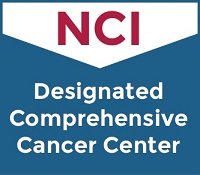Working Together to Prevent Infection
The following are some of the necessary precautions you must practice while recovering from a stem cell transplant:
Hand Washing:
- Keep your hands clean. Wash your hands with soap and water.
- Dry with a clean cloth or a clean paper towel.
- Wash your hands before eating, after using the restroom, blowing your nose, going outdoors, and petting animals.
- Wash your hands before and after catheter care.
- Remind your caregivers and visitors to wash their hands.
Personal Care:
- Shower/bathe daily with your own soap, washcloth and towel that no one else uses. Use a gentle, non-drying soap.
- Keep your skin moist with non-alcohol based cream, lotion, or bath oil.
- Replace cosmetics and facial creams used before transplant with new ones.
- Keep your nails trimmed and clean. Avoid commercial manicures/pedicures until your counts are fully recovered. Check with your doctor.
- Shave with caution. An electric razor is preferred, especially if your platelet level is below 50,000. Use a straight edge or disposable razor only when your platelet level is above 50,000.
- Check your skin every day for rashes, bruising, swelling or redness. Tell your doctor if you have any of these signs.
Mouth Care:
- Replace old toothbrush with a new one after transplant.
- Use a new toothbrush every 3 months.
- Brush your teeth with a soft-bristled toothbrush and rinse mouth thoroughly.
- Use a non-alcohol based mouthwash.
- Floss only when your platelet level is above 50,000.
- Check your mouth and lips every day for blisters or sores. Check your tongue for any white patches, cracks or areas of bleeding. Tell your doctor if you have any of these signs.
- Ask your transplant physician when you can resume dental visits.
Family or Visitors:
- Friends and relatives may not visit if they have a cold or sniffles, diarrhea, the flu or any other contagious illness. If someone in your home becomes ill, try to have as little contact with him/her as possible. Everybody in the household should wash their hands often. If you have questions, ask your physician.
- You should not be in contact with anyone who has received a "live" vaccine for 30 days. If your children are scheduled to receive vaccines, inform their physician that these must be inactivated form.
- Family members may receive the inactivated or "killed" flu vaccine shot, not the inhaled flu vaccine or FluMist, which contains live viruses.
Home Environment:
- Your home should be thoroughly cleaned before you return from the hospital. Ask family members or friends for help.
- Avoid all housekeeping chores such as vacuuming or dusting. Go to another part of the house and wear your mask while these activities are being done.
- Do not use a humidifier in your home.
- All plants and flowers should be removed from your home.
- Avoid wet paint, paint fumes, cleaning solvents, fertilizers, pesticides, and gasoline fumes. These agents are toxic to the bone marrow.
- Do not begin any construction/renovation projects in your home.
Pets and Animals:
- You should not be around pets if possible, or limit your contact with them. Do not hug or kiss your pet. Wash hands thoroughly after contact with any animals.
- Never clean litter boxes, bird feeders or cages, turtle tanks or aquariums. Ask family members or friends for help.
- Avoid your pet if he/she becomes ill. Have someone arrange veterinary care at the first sign of illness in a pet. Let your physician know of any virus your pet may have.
Going Outdoors:
- Wear your mask when outdoors, in crowded areas, or near construction sites.
- Avoid zoos, parks, and areas heavily populated with birds.
- Avoid construction and renovation sites.
- Avoid yard work, gardening and mowing grass.
- Avoid touching or cleaning sandboxes.
- Avoid swimming and hot tubs.
- Avoid exposure to the sun. Wear protective clothing and apply sunscreen with SPF 30 or greater.
- If you plan to travel, please talk with your transplant physician first.
Physical Activity:
- Your energy level will improve as your blood cell counts recover. Increase your activity level gradually.
- Do light exercises such as walking, stretching or cycling.
- Get plenty of rest and take breaks in between activities.
- Avoid driving until allowed by your physician.
- Discuss with your physician when you may return to school or work.
Medicines, Alcohol, Smoking, other substances:
- Take your medicine only as instructed.
- Tell your doctor if you are unable to take your medicines for any reason.
- Ask your doctor before taking any over-the-counter medications, including herbal remedies.
- Do not smoke cigarettes or use any other tobacco products. Avoid second-hand smoke.
- Do not consume any alcoholic beverages.
- Never use any illegal or recreational drugs.


